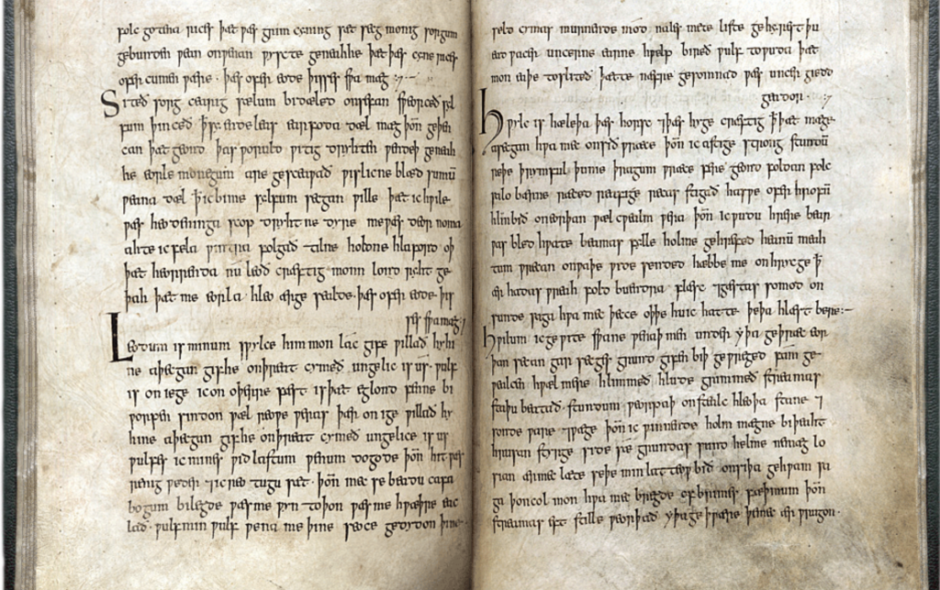Translation into Spanish of the poem Wulf and Eadwacer, an Old English elegy of notably difficult interpretation. It focuses on separation, loss and longing. This Anglo-Saxon antiquity can be found within the 10th century Exeter Book, an anthology of poetry in Old English and the oldest book of English literature in the world.
Wulf and Eadwacer, in modern English
It is to my people as if someone gave them a gift.
They want to kill him, if he comes with a troop.
It is different for us.
Wulf is on one island I on another.
That island, surrounded by fens, is secure.
There on the island are bloodthirsty men.
They want to kill him, if he comes with a troop.
It is different for us.
I thought of my Wulf with far-wandering hopes,
Whenever it was rainy weather, and I sat tearfully,
Whenever the warrior bold in battle encompassed me with his
arms.
To me it was pleasure in that, it was also painful.
Wulf, my Wulf, my hopes for you have caused
My sickness, your infrequent visits,
A mourning spirit, not at all a lack of food.
Do you hear, Eadwacer? A wolf is carrying
our wretched whelp to the forest,
that one easily sunders which was never united:
our song together.
Wulf y Eadwacer
Para ellos, es como si alguien les hubiera hecho un regalo.
Quieren matarlo si viene con una tropa.
Es diferente para nosotros.
Wulf está en una isla y yo en otra.
Aquella isla, rodeada de terrenos pantanosos, es segura.
Allí, en esa isla, hay hombres sanguinarios.
Quieren matarlo si viene con una tropa.
Es diferente para nosotros.
Pensaba en mi Wulf con esperanzas pasajeras, distantes,
durante los días lluviosos, cuando me pasaba las horas
sentada, entre lágrimas,
o cuando el audaz guerrero me tomaba entre sus brazos.
Sentía placer, pero también dolor.
Wulf, mi Wulf, fue mi esperanza en ti lo que me provocó
esta enfermedad, y tus visitas esporádicas,
fue mi alma en pena, no el hambre.
¿Me escuchas, Eadwacer? Un lobo se lleva
nuestro desgraciado tesoro al bosque,
ese que se ha roto con gran facilidad, porque nunca fuimos
uno,
porque nunca tuvimos nuestra propia canción.

